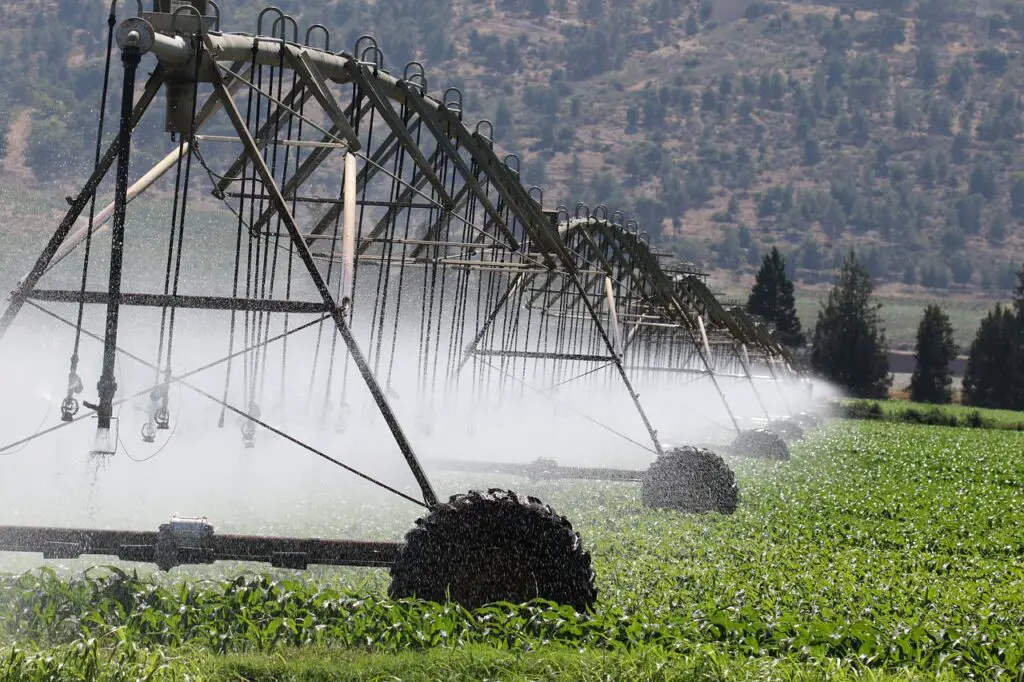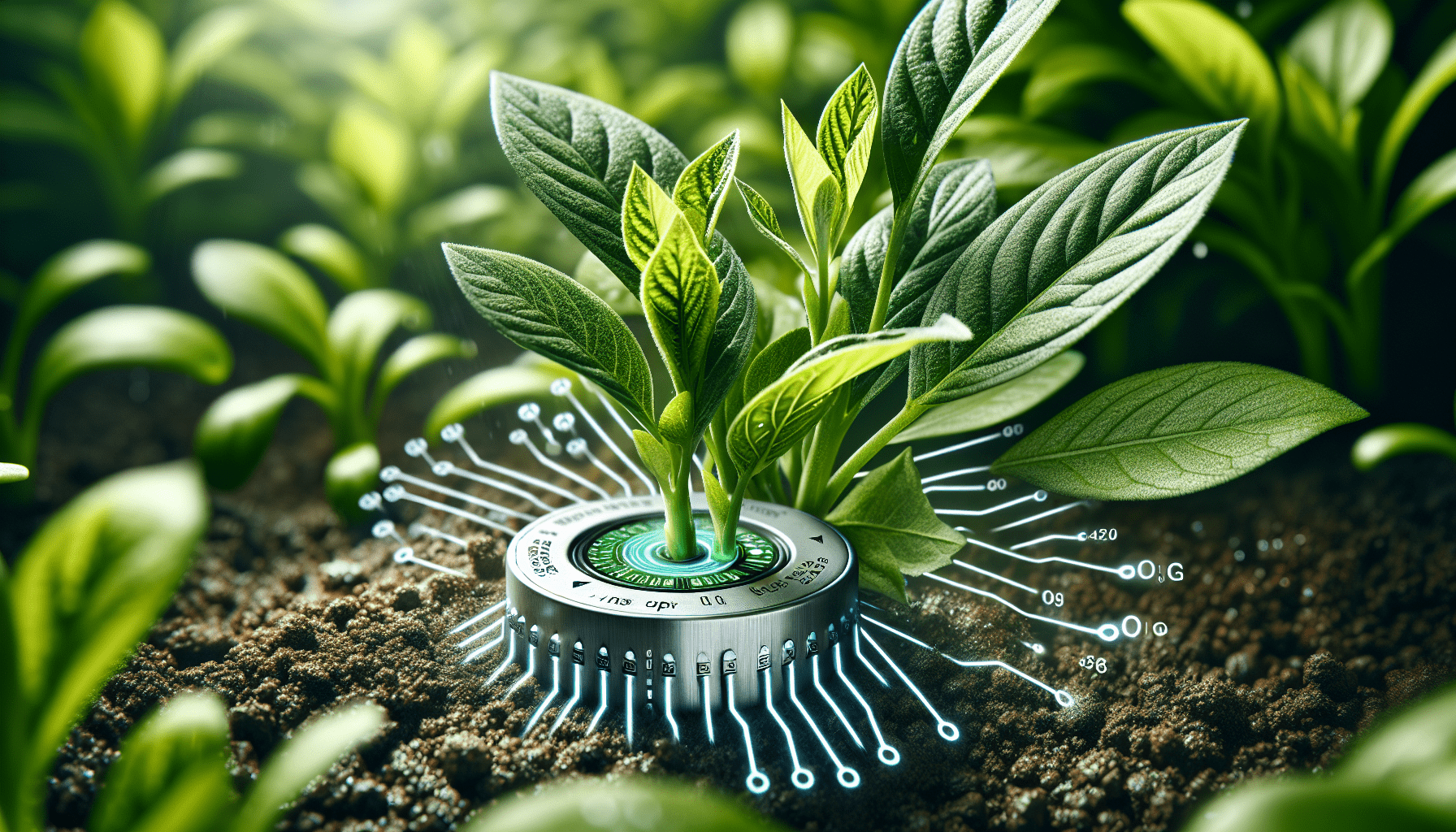This post may contain affiliate links which means I may receive a commission for purchases made through links. Learn more on my Private Policy page.
Welcome to an insightful article on unlocking the potential of smart irrigation systems. In today’s world, conserving water and optimizing irrigation practices are crucial for sustainable agriculture. Smart irrigation systems use technology to deliver the right amount of water to plants at the right time, saving water and increasing crop yields. By implementing smart irrigation systems, farmers can improve efficiency, reduce costs, and minimize environmental impact. Let’s explore how these innovative systems are revolutionizing the agriculture industry for a greener and more prosperous future.
Hey there! Have you ever wondered how you can save water while keeping your plants healthy and thriving? Smart irrigation systems might just be the answer you’ve been looking for. Let’s dive into how these innovative systems can help you unlock the full potential of your garden while being environmentally conscious.

What Are Smart Irrigation Systems?
Smart irrigation systems are a modern solution for watering your garden efficiently. These systems use sensors, weather data, and automation to tailor the watering schedule to the specific needs of your plants. By utilizing technology, smart irrigation systems can help you save water, reduce your water bills, and promote healthier plant growth.
How Do Smart Irrigation Systems Work?
Smart irrigation systems use a combination of sensors, Wi-Fi connectivity, and automation to monitor and adjust watering schedules. Soil moisture sensors measure the moisture levels in the soil, ensuring that water is only applied when necessary. Weather sensors gather data on temperature, humidity, and precipitation, allowing the system to adjust watering schedules based on current weather conditions. Wi-Fi connectivity enables remote access to the system, so you can control it from your smartphone or computer.
Benefits of Using Smart Irrigation Systems
Smart irrigation systems offer a wide range of benefits for both you and your garden. Let’s take a closer look at some of the advantages of using these innovative systems.
Water Conservation
One of the most significant benefits of smart irrigation systems is water conservation. By using sensors to monitor soil moisture levels and weather conditions, these systems can avoid overwatering and ensure that your plants receive the right amount of water they need. This not only helps you save water but also reduces the risk of water runoff and erosion.
Cost Savings
In addition to saving water, smart irrigation systems can also help you save money on your water bills. By optimizing watering schedules based on actual plant needs, you can avoid wasting water on unnecessary irrigation. Over time, these savings can add up, making smart irrigation systems a cost-effective investment for your garden.
Improved Plant Health
By providing your plants with the right amount of water at the right time, smart irrigation systems can help promote healthier plant growth. Overwatering can lead to root rot and other issues, while underwatering can cause wilting and stunted growth. With a smart irrigation system, you can ensure that your plants are always receiving the optimal amount of water for their needs, leading to healthier and happier plants.
Convenience
With smart irrigation systems, you can say goodbye to the hassle of manually watering your garden. These systems automate the watering process, so you can set it and forget it. Additionally, many smart irrigation systems offer remote access via smartphone apps, allowing you to monitor and control your system from anywhere, anytime. This convenience makes it easy to keep your garden hydrated and healthy, even when you’re away from home.
Environmental Impact
By using water more efficiently, smart irrigation systems can help reduce your environmental impact. Water is a precious resource, and by conserving water in your garden, you are doing your part to protect the environment. Additionally, smart irrigation systems can help prevent water waste and runoff, which can contribute to pollution and water scarcity.
Types of Smart Irrigation Systems
There are several types of smart irrigation systems available on the market, each offering unique features and benefits. Let’s explore some of the most common types of smart irrigation systems to help you choose the best option for your garden.
Weather-Based Smart Controllers
Weather-based smart controllers use weather data to adjust the watering schedule based on current weather conditions. These controllers typically gather data from local weather stations or online sources and use this information to optimize watering schedules. By taking into account factors such as temperature, humidity, and precipitation, weather-based smart controllers can ensure that your plants receive the right amount of water they need.
Soil Moisture Sensors
Soil moisture sensors measure the moisture levels in the soil and adjust the watering schedule accordingly. These sensors can be installed directly in the soil or connected to the irrigation system, allowing them to provide real-time data on soil moisture levels. By monitoring soil moisture, these sensors can prevent overwatering and ensure that your plants receive the optimal amount of water for their needs.
Evapotranspiration (ET) Controllers
Evapotranspiration (ET) controllers use data on evaporation and plant transpiration to calculate the water needs of your garden. By taking into account factors such as temperature, humidity, wind speed, and solar radiation, ET controllers can determine how much water your plants are losing to evaporation and transpiration. This information allows the controller to adjust the watering schedule to provide your plants with the right amount of water they need to thrive.
Flow Sensors
Flow sensors monitor water flow in the irrigation system and detect leaks or other issues that may waste water. These sensors can help you identify and address problems in your irrigation system, ensuring that water is used efficiently and effectively. By detecting leaks early and preventing water waste, flow sensors can help you save water and reduce your water bills.
How to Choose the Right Smart Irrigation System
When selecting a smart irrigation system for your garden, there are several factors to consider to ensure that you choose the best option for your specific needs. Let’s explore some key considerations to keep in mind when selecting a smart irrigation system.
Garden Size and Layout
The size and layout of your garden will play a significant role in determining the type of smart irrigation system that is best suited for your needs. Larger gardens may require a more complex system with multiple sensors and zones, while smaller gardens may only need a basic system with a single controller. Consider the size and layout of your garden when choosing a smart irrigation system to ensure that it can effectively meet your watering needs.
Plant Types and Watering Needs
Different plants have different watering requirements, so it’s essential to consider the types of plants in your garden when selecting a smart irrigation system. Some plants may need more water than others, while some may prefer drier conditions. Make sure to choose a system that can adjust watering schedules based on the specific needs of your plants to ensure that they receive the right amount of water they need to thrive.
Budget and Cost
Smart irrigation systems vary in price, so it’s essential to consider your budget when selecting a system. While some systems may have a higher upfront cost, they may offer long-term savings on water bills and maintenance. Consider the total cost of the system, including installation, maintenance, and any additional accessories, to determine the overall value of the system for your garden.
Ease of Installation and Use
When choosing a smart irrigation system, consider how easy it is to install and use. Some systems may require professional installation, while others can be easily installed by homeowners. Additionally, consider the user interface and controls of the system to ensure that it is easy to program and adjust watering schedules. Choose a system that is user-friendly and intuitive to make managing your garden’s watering needs a breeze.
Connectivity and Compatibility
Smart irrigation systems often come with various connectivity options, such as Wi-Fi or Bluetooth, to allow for remote access and control. Consider the connectivity options of the system and ensure that it is compatible with your smartphone or other devices. Additionally, check if the system can integrate with other smart devices in your home, such as smart home assistants, to streamline your gardening experience.

Tips for Getting Started with Smart Irrigation Systems
Now that you have a better understanding of smart irrigation systems and how they can benefit your garden, here are some tips to help you get started with implementing a smart irrigation system in your garden.
Conduct a Water Audit
Before installing a smart irrigation system, conduct a water audit to assess your current watering habits and identify areas where you can improve water efficiency. Measure your water usage, identify any leaks or inefficiencies in your irrigation system, and determine the watering needs of your plants. This information will help you select the right smart irrigation system for your garden and optimize your watering schedule for maximum efficiency.
Research Different Systems
Take the time to research different smart irrigation systems to find the best option for your garden. Consider the features, benefits, and pricing of each system to determine which one aligns with your needs and budget. Read reviews from other users and consult with gardening experts to gather more information on the pros and cons of each system. Choose a system that offers the features and benefits that are most important to you to ensure that it meets your watering needs.
Install and Configure the System
Once you have selected a smart irrigation system, follow the manufacturer’s instructions to install and configure the system in your garden. Make sure to place sensors in optimal locations to accurately measure soil moisture levels and weather conditions. Program the system to adjust watering schedules based on the specific needs of your plants and set up remote access if available. Test the system to ensure that it is working correctly and monitor its performance to make any necessary adjustments.
Monitor and Maintain the System
Regularly monitor and maintain your smart irrigation system to ensure that it is functioning correctly and efficiently. Check the sensors regularly to ensure they are providing accurate data and adjust watering schedules as needed based on plant growth and weather conditions. Inspect the system for leaks, clogs, or other issues that may impact its performance and address them promptly. By monitoring and maintaining your smart irrigation system, you can ensure that your plants receive the right amount of water they need to thrive.
In Conclusion
Smart irrigation systems are a powerful tool for conserving water, saving money, and promoting healthier plant growth in your garden. By utilizing technology and automation, these systems can help you unlock the full potential of your garden while being environmentally conscious. Whether you have a small backyard garden or a large commercial farm, smart irrigation systems offer a range of benefits that make them a valuable investment for any gardener. So why wait? Unlock the potential of your garden today with a smart irrigation system!

This post may contain affiliate links which means I may receive a commission for purchases made through links. Learn more on my Private Policy page.

